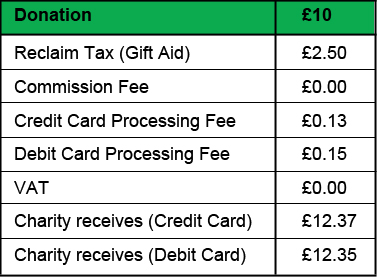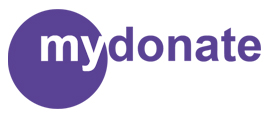Whilst the overseas event is the overall goal of your participation, you’ve got a long way to go before you even get on the plane! Each participant is required to raise a minimum of £3,500* in order to take part in the programme, which may sound scary but if you plan it out properly (we’ll help!) then you’ll hit your target in no time. Check out some of the hints and tips we’ve put together below, but don’t worry if you’re still not sure, we will run a fundraising workshop at your induction event, and assign you a fundraising mentor who will help you raise the money. We’ll also give you an in-depth guide to fundraising which we have written based upon the years of experience we’ve gained running Challenge Worldwide – we know what works and what doesn’t so we can help you!
*This total does not include the £500 deposit you are required to pay, which should be a personal contribution – do not fundraise the deposit, it is not Gift Aid eligible.
If you are accepted onto the programme, we will give you lots of coaching and support to get you on target, but here is a selection of ideas we’ve used successfully in the past, hopefully these will inspire you and help you come up with some ideas of your own.
Treat it Like running a Business
• First off, treat fundraising like running a business. Develop a strategy, have back-up plans if something doesn’t work, and don’t think that just organising a big event is enough. For instance, if you organise a charity ball or raffle & race night, you need to consider marketing, keeping costs at a minimum, and your target audience – it’s all well and good inviting your mates who are at Uni, but if they don’t have money to donate it doesn’t help you! Instead, invite people you know will give generously, and will hopefully bring friends and family along too.

Events are key
• Big events are definitely the way forward, be they skydives, discos, football tournaments or whatever else you think of. A big event where lots of people attend and can donate in several different ways will bring in big amounts of money. For instance if you organise a skydive with 10 of your friends, each person pays £150 for the skydive, then raises a minimum of £250 towards your ‘Challenge fund’ – that’s £2,500 you’ve raised in one go!

Pain = Pounds
• Something that causes you some kind of discomfort will (strangely enough) get people donating. In the past we’ve had male participants make in excess of £1,200 from donations for a full leg wax. You can get the local press involved, and maybe even auction off the opportunity for friends and family to pull individual strips (not comfy for you, but if it raises you a lot of money so you won’t regret it).

Collections
• Shop collections are really successful if done well, one of our previous participants regularly raised £750 per shop collection. On the other hand, collections in train stations tend not to work too well. One thing though, a silly costume is a must. Dressing as a bad guy from a film you like is a bad idea, but for instance, a silly lion costume appeals to everyone (and a few people might donate just because they think you’re brave for dressing like that!).
• Going back to your old school/your children’s school is a good idea, if you ask them early enough they could organise a dress-down day where each student pays a pound to wear normal clothes. If the school has 1,000 students that’s potentially £1,000 toward your ‘Challenge fund’ without too much effort. Of course, it’s a good idea to give something back to the school, maybe organise to deliver a presentation in a whole school assembley when you get back – everyone will be keen to hear what their donation supported.
• Smaller ideas work really well too – consider organising a charity car wash or bake sale, or even something in your next team meeting. For instance, buy a bottle of a popular alcoholic drink (whisky, vodka etc.) and lay it at one end of the room. People stand at the other end of the room and roll pound coins at the bottle. Whoever’s coin is closest at the end of the game wins the bottle, and you keep all the coins. This is simple but very effective – in team meetings you can make £30 or more, but if you do this at a big event (e.g. disco or raffle & race night), people are bound to get competitive, you could make £80 or more.

Sell, sell, Sell!
• It’s easy to make a couple of hundred pounds selling old mobile phones to companies online, an easy way to make money for your ‘Challenge fund’ and you can clear your house of old gadgets. A car boot sale is usually a good idea too, there are always people looking for bargains, and you might just have something they really want in your old clutter.

One of the most important things you should do once you start fundraising is to set up an online donations page. There are several online collection services available these days, but we recommend you sign yourself up for a BT MyDonate page. This way friends and family can make donations which will automatically be processed into the Challenge Worldwide account, and Gift Aid will be processed (if applicable) automatically. This is a great way for you to keep track of your fundraising total, keep friends and family updated with your progress, and get ideas from other fundraisers to help you reach your target.
We recommend BT MyDonate because (to the best of our knowledge) this is the only online giving service which is completely not-for-profit. What we mean by this is that many online collection services make their money by charging administration & transaction fees. This cost is not taken out of the donations people make, but out of the Gift Aid ‘Challenge Worldwide: Training for Life’ can claim on the donation. We rely on Gift Aid to sustain the projects we have set up in the past (e.g. the Kibera slums feeding programme) so the more money that goes to the charity the better. BT MyDonate doesn’t charge any administration or transaction fees, so the only cost is credit/debit card fees, which are incredibly low, so it maximises the support the charity can provide to your project after you finish it.

We’ll give you advice and guidance on setting up your own BT MyDonate page when you attend your induction event, it’s quick and easy, and it will be a great way for you to manage your funds in the run up to the event.
Once your group has completed the community project Gift Aid is what will ensure the sustainability of it. Gift Aid is a Governement scheme that allows ‘Challenge Worldwide: Training for Life’ to claim back basic rate tax already paid on donations by you and anyone that donates to your fundraising target. This is currently worth 25p for every pound donated by a UK Tax payer.
Example: If a donor gives £10 to charity and is a basic rate tax payer (20%), they will have paid £2.50 in tax on the gross donation (to take £10 home, you will have received £12.50 before tax). Charities are able to reclaim this £2.50 back from HMRC.
Higher rate tax payers can benefit from the tax relief too, as they can claim back the difference between the higher rates of tax at 40% and 50% and the basic rate tax at 20% on the total value of the gross donation.
You will be required to complete a Gift Aid declaration as a part of your application for BT Challenge Tanzania 2012, but for your family and friends, the benefit of you creating a BT MyDonate page is that the service handles their Gift Aid declaration for them.
Information provided by:
http://www.hmrc.gov.uk/individuals/giving/gift-aid.htm
http://www.tax-effective-giving.org.uk/?pageid=What_is_Gift_Aid.xml






